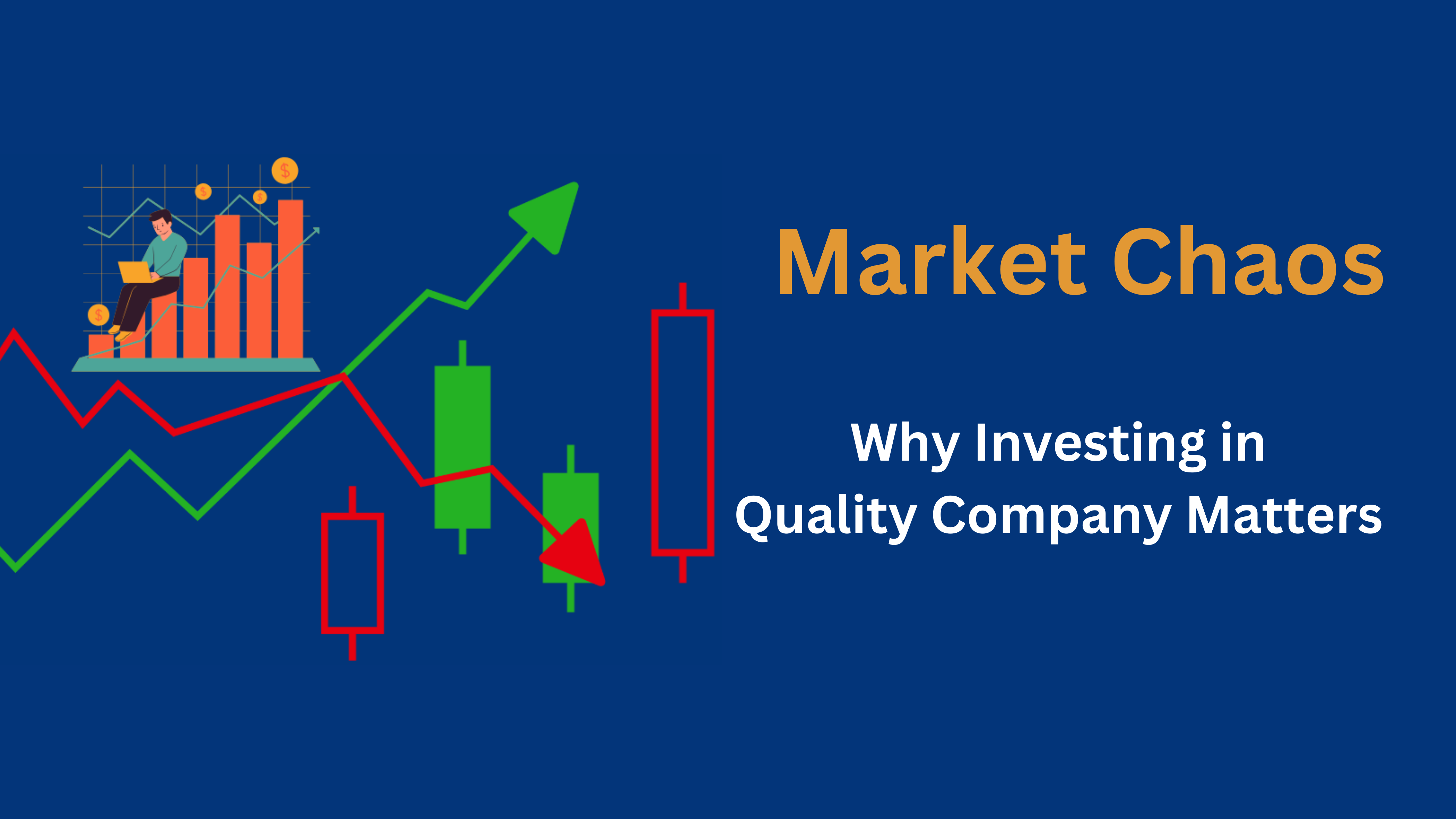DON’T GET CAUGHT IN THE CHAOS: WHY INVESTING IN QUALITY COMPANIES WON’T SHAKE YOU WHEN THE MARKET CORRECTS
The stock market is notorious for its volatility, and the current situation is no different. The NIFTY 50 index, a key benchmark for Indian equities, has underperformed compared to global markets, largely due to rising valuations, weaker demand, and disappointing earnings. As a result, the market has corrected by around 10%. Adding to this, Foreign Portfolio Investor (FPI) outflows have amplified the downturn. Many companies have reported losses and weak earnings, while consumption in India remains stagnant, though expected to improve with higher government spending.
Amid this chaos, it’s easy to panic. Market corrections can be unsettling, but there’s a silver lining for investors who focus on quality companies. Even in times of volatility, high-quality stocks can offer resilience, making it possible to stay on track with your investment goals.
Why Market Volatility Can Be Unsettling
Table of Contents
ToggleVolatile markets often lead to emotional decision-making. Watching the value of your investments fall by 10% or more can trigger fear and anxiety, prompting some investors to sell at a loss. However, such knee-jerk reactions usually hurt long-term wealth creation. History shows that markets do eventually recover, and staying invested in strong companies can help you navigate these turbulent times without losing sight of your goals.
The Case for Investing in Quality Companies
Even in uncertain markets, some companies continue to perform well. These companies typically have solid fundamentals, strong management, and competitive advantages. Investing in such businesses allows you to weather short-term fluctuations without sacrificing your long-term growth potential.
But how can you determine which companies are of high quality?
Key Indicators of Quality Companies
To identify high-quality companies, start by looking at a few key metrics that reveal how well a company is managed and how effectively it uses its resources.
- Return on Capital Employed (ROCE)
One of the most important metrics to assess a company’s performance is Return on Capital Employed (ROCE). ROCE measures how efficiently a company uses its capital to generate profits. A high ROCE indicates that the company is managing its resources effectively, which is crucial for long-term growth. Companies with a consistently high or improving ROCE are generally better positioned to withstand market downturns and offer great returns over time.
- Financial Health and Debt Management
Another important factor is the company’s financial health. Companies with manageable levels of debt and strong cash flows are less likely to be severely affected by market corrections. Those that manage their finances prudently can weather tough times better than highly leveraged firms, making them more stable investments in uncertain periods.
- Resilient Business Model
Companies with resilient business models tend to fare better during economic slowdowns. A strong business model, competitive advantages, and pricing power are key indicators of a company’s ability to thrive even when consumption is weak. For instance, companies in sectors with consistent demand—such as essential goods and services—are better insulated from economic volatility.
- Experienced Management
Strong leadership is another hallmark of quality companies. Companies with experienced, proactive management teams are better at navigating challenges and capitalizing on growth opportunities, even in difficult times. These companies can make smart decisions during market corrections, adjusting strategies to protect long-term value.
Why Quality Companies Can Weather Market Corrections
During market downturns, many stocks see their prices fall due to broader market sentiment, regardless of a company’s fundamentals. However, high-quality companies tend to be more resilient in the face of such corrections. They have a solid track record, strong management, and healthy financials, which help them endure market turbulence.
Even if the market declines further, companies with a high ROCE, low debt, and a competitive edge are more likely to hold their ground and recover faster when the market stabilizes. Furthermore, such companies often trade at more attractive valuations during a market correction, creating a buying opportunity for long-term investors.
The Benefits of Investing in Quality During Corrections
Market corrections, while unsettling, also present buying opportunities. Quality companies that are undervalued due to market panic are often worth considering for investment. Over the long term, these companies will likely outperform their competitors and provide significant growth. By focusing on companies with solid fundamentals, you ensure that your investments are better positioned for success, even during tough market conditions.
Conclusion: Stay Focused on the Long Term
Market volatility and corrections are part of the investing journey, but they don’t have to derail your financial goals. By investing in quality companies—those with strong ROCE, manageable debt, resilient business models, and experienced management—you can navigate market chaos with confidence. Even during corrections, these companies are likely to provide stability and strong long-term returns.
The key to surviving and thriving in volatile markets is staying focused on the fundamentals. Resist the urge to react impulsively to short-term fluctuations. Instead, view corrections as an opportunity to buy quality stocks at attractive prices, positioning your portfolio for long-term growth. Remember, market downturns are temporary, but the value provided by quality companies lasts.



















































